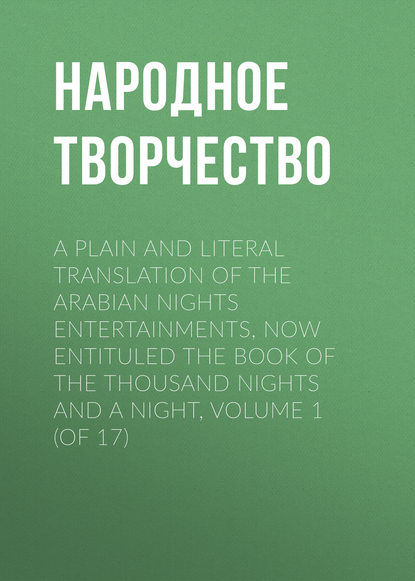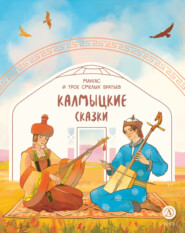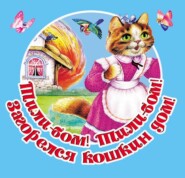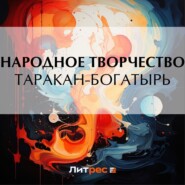По всем вопросам обращайтесь на: info@litportal.ru
(©) 2003-2024.
✖
A plain and literal translation of the Arabian nights entertainments, now entituled The Book of the Thousand Nights and a Night, Volume 1 (of 17)
Настройки чтения
Размер шрифта
Высота строк
Поля
627
Arab. "Yá bárid"=O fool.
628
This form of blessing is chaunted from the Minaret about half-an-hour before midday, when the worshippers take their places in the mosque. At noon there is the usual Azán or prayer-call, and each man performs a two-bow, in honour of the mosque and its gathering, as it were. The Prophet is then blessed and a second Salám is called from the raised ambo or platform ("dikkah") by the divines who repeat the midday-call. Then an Imam recites the first Khutbah, or sermon "of praise"; and the congregation worships in silence. This is followed by the second exhortation "of Wa'az," dispensing the words of wisdom. The Imam now stands up before the Mihráb (prayer niche) and recites the Ikámah which is the common Azan with one only difference: after "Hie ye to salvation" it adds "Come is the time of supplication"; whence the name, "causing" (prayer) to stand (i. e. to begin). Hereupon the worshippers recite the Farz or Koran-commanded noon-prayer of Friday; and the unco'guid add a host of supererogatories. Those who would study the subject may consult Lane (M. E. chapt. iii. and its abstract in his "Arabian Nights," I, p. 430, or note 69 to Chapt. v.)
629
i. e., The women loosed their hair; an immodesty sanctioned only by a great calamity.
630
These small shops are composed of a "but" and a "ben" (Pilgrimage i. 99.)
631
Arab. "Kawwád," a popular term of abuse; hence the Span. and Port. "Alcoviteiro." The Italian "Galeotto" is from Galahalt, not Galahad.
632
i. e. "one seeking assistance in Allah." He was the son of Al-Záhir bi'lláh (one pre-eminent by the decree of Allah). Lane says (i. 430), "great-grandson of Harun al-Rashid," alluding to the first Mustansir son of Al-Mutawakkil (regn. A.H. 247-248=861-2). But this is the 56th Abbaside and regn. A.H. 623-640 (=1226-1242).
633
Arab. "Yaum al-Id," the Kurban Bairam of the Turks, the Pilgrimage festival. The story is historical. In the "Akd," a miscellany compiled by Ibn Abd Rabbuh (vulg. Rabbi-hi) of Cordova, who ob. A.H. 328=940 we read: – A spunger found ten criminals and followed them, imagining they were going to a feast; but lo, they were going to their deaths. And when they were slain and he remained, he was brought before the Khalifah (Al-Maamun) and Ibrahim son of Al-Mahdi related a tale to procure pardon for the man, whereupon the Khalifah pardoned him. Lane ii, 506.
634
Arab. "Nata' al-Dam"; the former word was noticed in the Tale of the Bull and the Ass. The leather of blood was not unlike the Sufrah and could be folded into a bag by a string running through rings round the edges. Moslem executioners were very expert and seldom failed to strike off the head with a single blow of the thin narrow blade with razor-edge, hard as diamond withal, which contrasted so strongly with the great coarse chopper of the European headsman.
635
The ground floor, which in all hot countries is held, and rightly so, unwholesome during sleep, is usually let for shops. This is also the case throughout Southern Europe, and extends to the Canary Islands and the Brazil.
636
This serious contemplation of street-scenery is one of the pleasures of the Harems.
637
We should say "smiled at him": the laugh was not intended as an affront.
638
Arab. "Fals ahmar." Fals is a fish-scale, also the smaller coin and the plural "Fulús" is the vulgar term for money (=Ital. quattrini) without specifying the coin. It must not be confounded with the "Fazzah," alias "Nuss," alias "Páráh" (Turk.); the latter being made, not of "red copper" but of a vile alloy containing like the Greek "Asper," some silver; and representing, when at par, the fortieth of a piastre, the latter being=2d. ⅖ths.
639
Arab. "Farajiyah," a long-sleeved robe; Lane's "Farageeyeh," M. E., chapt. i.
640
The tailor in the East, as in Southern Europe, is made to cut out the cloth in presence of its owner to prevent "cabbaging."
641
Expecting a present.
642
Alluding to the saying, "Kiss is the key to Kitty."
643
The "panel-dodge" is fatally common throughout the East, where a man found in the house of another is helpless.
644
This was the beginning of horseplay which often ends in a bastinado.
645
Hair-dyes, in the East, are all of vegetable matter, henna, indigo-leaves, galls, etc.: our mineral dyes are, happily for them, unknown. Herklots will supply a host of recipes. The Egyptian mixture which I quoted in Pilgrimage (ii., 274) is sulphate of iron and ammoniure of iron one part and gall nuts two parts, infused in eight parts of distilled water. It is innocuous but very poor as a dye.
646
Arab. Amrad, etymologically "beardless and handsome," but often used in a bad sense, to denote an effeminate, a catamite.
647
The Hindus prefer "having the cardinal points as her sole garment." Vêtu de climat, says Madame de Stael. In Paris nude statues are "draped in cerulean blue." Rabelais (iv., 29) robes King Shrovetide in grey and gold of a comical cut, nothing before, nothing behind with sleeves of the same.
648
This scene used to be enacted a few years ago in Paris for the benefit of concealed spectators, a young American being the victim. It was put down when one of the lookers-on lost his eye by a pen-knife thrust into the "crevice."
649
Meaning that the trick had been played by the Wazir's wife or daughter. I could mention sundry names at Cairo whose charming owners have done worse things than this unseemly frolic.
650
Arab. "Shayyun li'lláhi," a beggar's formula=per amor di Dio.
651
Noting how sharp-eared the blind become.

















